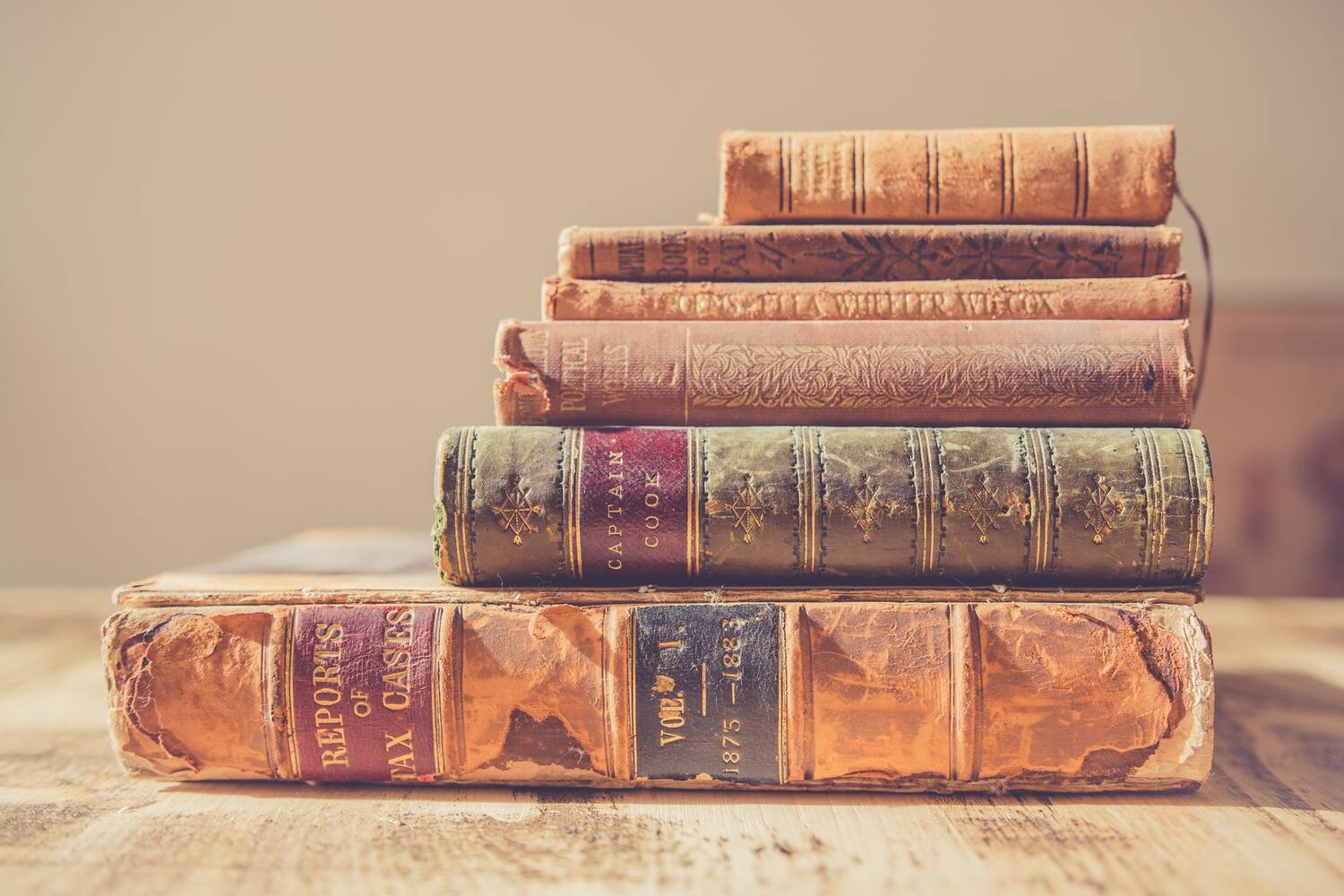The Best Books of All Time: 42 Can’t Miss Titles for Every Genre

From riveting thrillers to inspiring true-to-life experiences, these best books of all time won the hearts of millions of avid readers and literary critics. So much so that some have never been out of print since its first publication.
How Do You Choose the Next Book To Read?
There is no shortage of books to read, and for many, that overabundance can turn into a chaotic struggle of finding the next book to read. Here are three tips to point you in the right direction, whether you are looking for books like Harry Potter or want a faster way to choose a book.
Find Your Genre
Most people have a sense of what type of book they like. Even if you already know what genre speaks to you, it can be fun to expand your horizons. Maybe dystopian fiction calls to you or a bubbly, fun romance that you can breeze through on vacation.
Consider Your Reading Preferences
Tone and style can be deciding factors as well. Some people love reading books with rich and evocative language, while others prefer light and easy-to-read writing. Find a book or book series that fits your needs if the page count is important.
Standalone vs. Series
Some of the most-read books are series, like Lord of the Rings, where several books are broken down into installments to complete the storyline. In every book, the author may introduce new characters and plotlines. On the other hand, standalone novels are self-contained, meaning the whole story ends in one book.
What Are the Best Fiction Books of All Time?
From novels penned by great American authors to books that broke boundaries and made a cultural impact, here are the top seven best fiction books of all time that you should read:
Ulysses by James Joyce
Ulysses is a timeless classic that needs no introduction. The book takes place on a single day (June 16, 1904) and follows the thoughts and musings of Mr. Leopold Bloom and his encounters with other Dublin locals.
Although not an easy book to read, Ulysses‘ 18 chapters (structured like Homer’s Odyssey) and Joyce’s complexity to discuss religion, adultery, and nationalism have made this 1920 book a masterpiece and the best novel of the 20th century.
So much so that every June 16, people celebrate and commemorate Joyce’s book.
The Catcher in the Rye by JD Salinger
The Catcher in the Rye is a coming-of-age story told through the eyes of cynical 16 years old Holden Caulfield. Holden spends three days wandering Manhattan, attempting to distance himself from superficial peers and the consequences of his expulsion from school.
He searches for human closeness throughout his trip while pushing back against adulthood, conformity, and commercialism. In a world full of fakes, Holden longs to preserve the innocence in the world and be the “catcher in the rye,” especially for his sister Phoebe.
The Great Gatsby by F. Scott Fitzgerald
Fitzgerald’s The Great Gatsby centers around Jay Gatsby and his story as a mysteriously wealthy man.
Now settling on Long Island, he attempts to risk everything he has to win back his love, Daisy Buchanan.
This book chronicles a group of “haves” and “have nots” as they grapple with the American Dream. Fitzgerald portrays Jay’s struggles of chasing the past and changing the future within the landscape of America’s post-war economic boom.
1984 by George Orwell
1984 takes place in the future time of 1984 when the totalitarian government watches over everyone and directs all activities. Winston, the main protagonist, works for the government, rewriting history to match the superstate’s wishes.
Although the “future” of 1984 has passed, the themes of this book still resonate over 70 years later. The threats of violation of free speech, constant surveillance, and the condemnation of free-thinking are still omnipresent in today’s society.
The Handmaid’s Tale by Margaret Atwood
Margaret Atwood spins a timeless, dark vision of an oppressive government and abhorrent human rights violations. The lead character, Offred, is a handmaid in the Republic of Gilead, a society where women are oppressed and are valued only for their reproductive capabilities.
To Kill a Mockingbird by Harper Lee
To Kill a Mockingbird, a Pulitzer-prize winner, takes a closer look at racism, inequality, and segregation. The story revolves around Atticus Finch, a sympathetic and just lawyer, and his two daughters (Scout and Jem) and their journey of understanding the world’s injustices.
Don Quixote by Miguel de Cervantes
After reading many chivalric romances, the book’s protagonist Alonso Quijano embarks on a quest to revive chivalry. Longing to be like his literary heroes, Quijano eventually loses touch with reality — mistaking windmills as giants and prostitutes as princesses.
This book was written in 1605 and is considered one of the founding works of modern Western literature.
What Are the Best Non-Fiction Books of All Time?
From shocking war stories to inspiring true-to-life experiences, you will find many great non-fiction books as captivating as any other genre.
In Cold Blood by Truman Capote
True crime at its finest. Truman Capote draws you into Holcomb, Kansas, and the brutal slaying of an entire family. When Capote hears about the quadruple murder, he heads out to Kansas to investigate. Capote documents his discoveries, interviews, and the psyches of killers Perry Smith and Richard Hickock as if it was a novel.
On Writing: A Memoir of the Craft by Stephen King
Stephen King penned many well-loved fictional books such as It, The Shining, and The Stand. His memoir, On Writing: A Memoir of the Craft, takes a different approach. King touches on how writing has helped him through difficult times.
Astrophysics for People in a Hurry by Neil deGrasse Tyson
Science continually makes headlines, but sometimes those topics are challenging to understand. Neil deGrasse Tyson, America’s top astrophysicist, penned the Astrophysics for People in a Hurry to fill the information gap.
Each chapter is a bite-sized, concise look at a topic that will help you understand the basics. These tidbits can be squeezed into any pocket of time in a busy day and may open the door to further learning and deeper understanding.
A Short History of Nearly Everything by Bill Bryson
Science can be downright terrifying to some and positively dull to others. In A Short History of Nearly Everything, Bill Bryson presents the subject in an engaging, approachable, and entertaining way.
Behind the Beautiful Forevers: Life, Death, and Hope in a Mumbai Undercity by Katherine Boo
Katherine Boo is a Pulitzer Prize-winning writer from The New Yorker and a former reporter and editor for The Washington Post.
Boo visited the Annawadi slums every day for four years, researching this book. She unflinchingly writes of the daily lives of the people living in the slums. This book highlights the struggles of the individuals and their response to the demands of everyday life.
What Are the Best Romance Novels of All Time?
When life gets tough, the best place to turn can be the soothing respite of a good romance novel. And these six romance novels of all time can bring that soothing and heartfelt feeling whenever you want to.
Pride and Prejudice by Jane Austen
Any list of best romance novels of all time wouldn’t be complete without Jane Austin’s Pride and Prejudice, even if it was published over 200 years ago.
This book follows the life of the Bennet sisters and the turbulent relationship of strong-willed and independent Elizabeth Bennet and rich, aristocratic, yet snobbish Fitzwilliam Darcy.
Romeo and Juliet by William Shakespeare
Romeo and Juliet, a romantic tragedy, views the lives of star-crossed lovers caught between their warring families. Shakespeare portrays love in unfortunate circumstances by exploring the ideologies of fate, timing, light, and darkness.
The Notebook by Nicholas Sparks
This modern-day classic will have you reaching for tissues. The book follows the love story of Noah and Allie, who was torn apart by war and disapproval. After 14 years, Allie shows up at his doorstep, and romance ensues.
The Time Traveler’s Wife by Audrey Niffenegger
Heartbreaking and life-affirming at the same time, Audrey Niffenegger’s unconventional love story will draw you in and keep you riveted until the unexpected ending. Henry DeTamble is a librarian who involuntarily travels through time, and Clare Abshire is an artist who serves as his anchor.
Jane Eyre by Charlotte Brontë
Jane is not your typical Victorian lady. She is outspoken, artistic, and sharp-witted. Moreover, she defies society’s expectations and lives life on her terms. These traits were startling for a Victorian woman but are abundantly relatable today. This classic is timeless and spans generations, feeling perennially fresh despite being published in 1847.
Vision in White by Nora Roberts
Mackensie “Mac” Elliot is a wedding photographer and runs a wedding service company with her best friends. Mach encounters an acquaintance named Carter, who then starts a causal relationship with him. Having never felt familial love, Mac is now terrified of losing the blossoming love between her and Carter.
Mac has never felt familial love. As romantic love begins to blossom with Carter, Mac is terrified of losing what she’s never had.
What Are the Best Fantasy Books of All Time?
Fantasy books are consistently on lists of the best novels of all time. The plot usually involves magical elements or is set in a fictional universe.
A Song of Ice and Fire by George R.R. Martin
George R.R. Martin’s series is an epic installment with three main storylines – an ongoing war among families for control over the continent of Westeros, the rise of supernatural creatures to the north of Westeros, and the ambition of the daughter of the last king to reclaim Westeros. The series was so popular that it was turned into an HBO show by the name of the first book, Game of Thrones.
Harry Potter by J.K. Rowling
This series is one of the best-selling books of all time, selling over 500 million copies worldwide. The 7-book series follows Harry Potter (the main protagonist) and his adventures of self-discovery, friendship, acceptance, and of course, his quest to defeat Lord Voldemort.
The Lord of the Rings by J.R.R. Tolkien
The Lord of the Rings was initially intended to be one book but was later released as a trilogy. The series follows Frodo and his companions to end the oppressive reign of Sauron. The Lord of the Rings presents the struggle between good and evil on Middle Earth.
His Dark Materials by Philip Pullman
His Dark Materials is a coming-of-age series that follows two children in parallel universes. It serves as a version of John Milton’s Paradise Lost, which turns the original on its head. Pullman seeks to commend humanity for what Milton saw as its major failing, original sin. It has drawn controversy over the critical tone of Christianity depicted.
The Dark Tower by Stephen King
Stephen King’s Dark Tower pulls inspiration from The Lord of the Rings, Clint Eastwood, and King Arthur.
The series consists of seven books but has numerous tie-ins to King’s other works. The series focuses on Roland Deschain, the last gunslinger in a post-apocalyptic world reminiscent of the American Old West with traces of magic. Roland searches for the Dark Tower, the nexus point of all universes.
Gentleman Bastard by Scott Lynch
Exploring the city-state of Camorr, the Gentleman Bastards are elite thieves and con artists who rob the wealthy. Centered around Locke Lamora, the books portray his adventures alongside his group, exploring his past and present. The books weave different stories loosely based on late medieval Venice to paint the world.
Gentleman Bastard is a seven-part series. Only three books are available as of this writing.
What Are the Best Thriller Books of All Time?
Thrillers offer an exciting and suspenseful reading experience. They are often coupled with a compelling hook, unexpected twists and turns, and a tense environment to keep us wanting more.
A Time to Kill by John Grisham
Grisham’s first novel tells the story of a lawyer who represents a black man accused of murdering his daughter’s rapists. As expected, racial tensions run high in the small southern town of Clanton, Mississippi. Grisham allows us to see both the direct discrimination faced in the south and inherent institutionalized racism. This novel forces us to question if and when vigilante justice is ever warranted.
And Then There Were None by Agatha Christie
Queen of Mystery Agatha Christie’s 1939 novel, And Then There Were None, is based around the lines of a sinister nursery rhyme. The storyline revolves around ten strangers who are invited to an island off the coast of England, and one of them is a killer.
The Talented Mr. Ripley by Patricia Highsmith
This book is the first in a series. Tom Ripley is a con man living in New York City, surviving by any means. Tom is sent to Italy to complete an unusual task — bring back Dickie Greenleaf. Mr. Ripley meets moneyed and cultured Dickie Greenleaf and becomes enamored with that world. Fondness grows to obsession and beyond. Tom Ripley’s desire to start over with a new life he longed for comes at a price. Is the talented Mr. Ripley willing and able to pay that price?
American Psycho by Bret Easton Ellis
American Psycho explores Wall Street in the 1980s world fueled by unlimited money. The book explores the dark satirical situation of Patrick combined with his spiraling skewed view of the world. He narrates his daily life to his nightly serial killer activities. The clash of his everyday life to his declining psychotic episodes is shown throughout this book.
The Silence of the Lambs by Thomas Harris
The Silence of the Lambs is a follow-up to Harris’ 1981 Red Dragon. The book follows the story of an FBI agent named Clarice Starling attempting to interview the infamous serial killer Hannibal Lecter. Hoping to gain information about another serial killer, she pulls herself into Hannibal’s game.
Gone Girl by Gillian Flynn
It sounds just like a Dateline episode: a husband kills his beautiful wife to escape a marriage gone sour. Amy disappears on the morning of her and Nick’s fifth anniversary. The police immediately suspect Nick, and for a good reason; he has a lot to hide. What begins as a seemingly straightforward disappearance takes wild twists and turns to a shocking conclusion.
What Are the Best Biographies of All Time?
Learning the stories of adversity, issues, and challenges of others gives us a deeper insight into ourselves and others. Here are the six best biographies to inspire you.
The Immortal Life of Henrietta Lacks by Rebecca Skloot
Rebecca Skloot’s The Immortal Life of Henrietta Lacks explores race and medical ethics. Before Henrietta Lacks succumbed to an aggressive cervical cancer, her doctors obtained her cancer cells without her or her family’s knowledge and permission.
The Diary of a Young Girl by Anne Frank
A compelling document from WWII about the human spirit despite atrocities, The Diary of Anne Frank explores her and her family’s struggle to survive the holocaust. Hiding in the back of an Amsterdam building for two years, Frank’s diary paints a picture of a young lady who remains hopeful, that is until the Nazis discover them.
A Song for Nagasaki by Paul Glynn
A Song for Nagasaki chronicles the life of Japanese radiologist and author Takashi Nagai. Surviving the Nagasaki atomic bomb, he worked tirelessly to help the victims. In 1951, Nagai passed away from leukemia after a lifetime of working with radiation.
The book shows how one man, while facing the horrors of war, was able to keep his inner peace and tranquility.
Leonardo da Vinci by Walter Isaacson
Many are familiar with Leonardo da Vinci’s works, but few know about his life. Isaacson combs through da Vinci’s meticulous notebooks to draw out who he was as a person.
Isaacson walks through the hallmarks of da Vinci and his varied interests in flying machines, weapons, and engineering. This book paints a clear and engaging picture of how these diverse interests contributed to one of history’s most intriguing men.
Frida: A Biography of Frida Kahlo by Hayden Herrera
Frida was more than just an artist; she was a complex woman who lived a remarkable life. In this well-researched book, Herrera details Frida’s marriage, love affairs, involvement with the Communist party, and the inspiration for her breathtaking art.
Alexander Hamilton by Ron Chernow
Do you love the musical Hamilton? You can say thank you to Ron Chernow. The biography looks at Alexander Hamilton’s struggles, achievements, and rise as one of America’s founding fathers. It is also a story of the birth of America.
What Are the Best Sci-Fi Books of All Time?
Science fiction or sci-fi combines imaginative and futuristic concepts to hook you in. Although the setting and characters are out-of-this-world, the genre remains relatable as it depicts many issues like good versus evil and an oppressive government.
Dune by Frank Herbert
Frank Herbert’s Dune tackles many issues in global consciousness today: environmentalism, nuclear deterrence, gender roles, and state-sponsored genocide. Albeit being adapted many times for movies and television, the book remains the ultimate version of the story.
The Martian by Andy Weir
This Andy Weir novel strips away the usual expanse of sci-fi and focuses on the ingenuity and resilience of one man.
The Martian chronicles Watney’s efforts to survive on Mars and return home to Earth. The novel is told in mostly log entries from Watney and a few sections of NASA specialists scrambling to rescue him.
The War of the Worlds by H.G. Wells
The War of the Worlds was serialized in a magazine in 1897 and printed as a novel in 1898. The book delves into an unidentified narrator living through a Martian invasion. The book dives into allegories of imperialism, colonialism, and racism; Drawing parallels to experiences of the world at the time. In 1938, a radio reading of the novel caused a panic when people did not realize it was fiction.
Frankenstein by Mary Shelley
The book explores Victor Frankenstein and his discovery of generating an artificial creature. Being made of human remains, the “monster” communicating with the townsfolk only inspired terror. The novel begs the question: what truly makes a monster?
The Fifth Season by N.K. Jemisin
Praised for its worldbuilding, The Fifth Season is the first in a trilogy of award-winning books by N. K. Jemisin. This novel examines the balance between integrity and survival set in an unjust society. Extinction-level events called Seasons frequently occur in an alternate world called The Stillness. Orogenes, a powerful but oppressed race, are the only means to control these seismic events. Jemisin weaves her story through three Orogene narratives.
The Expanse Series by James S.A. Corey
The Expanse series is nine novels set in a future where humanity has colonized much of the solar system. Developed initially as an online or tabletop game, Ty Franck instead decided to use extensive depth to write the novels alongside Daniel Abraham. The series was made into a T.V. show for the SyFy network and later picked up by Amazon Prime Video.
Conclusion
Books are deeply personal, and every avid reader has their list of best books of all time. But, no matter what genre you are a fan of or would love to be a part of, there are bound to be some excellent books on this list that appeal to you.
This article originally appeared on Wealth of Geeks.






